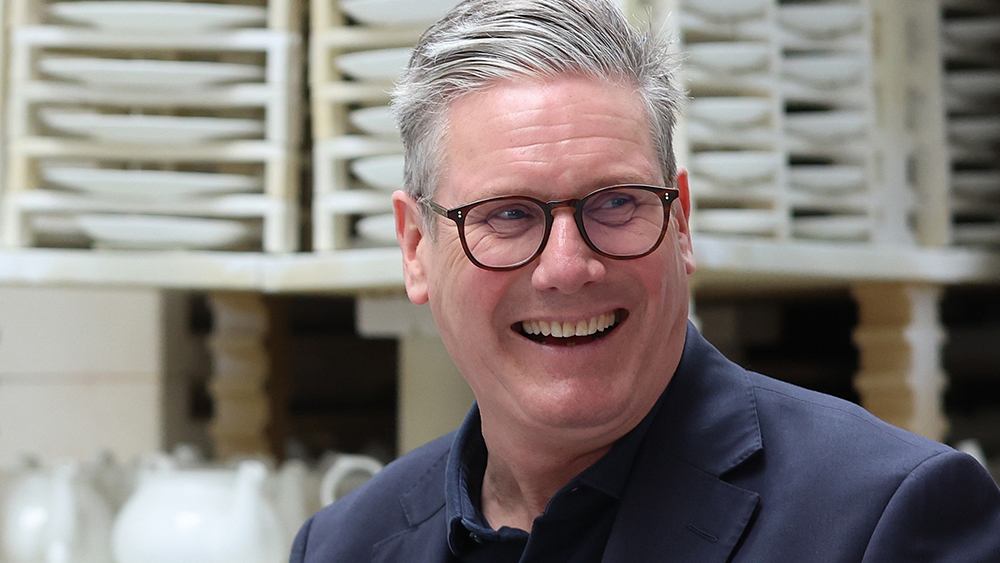
- The American Heart Association confirms sleep health involves timing, regularity and vitality, not just duration.
- Poor sleep patterns increase risks for heart disease, stroke, diabetes and obesity.
- Irregular sleep schedules and late bedtimes heighten cardiovascular dangers by 20-57%.
- The pharmaceutical sleep-aid market ignores root causes in favor of symptom management.
- Holistic solutions — like natural light alignment and stress reduction — are crucial for restorative sleep.
The myth of the eight-hour fix
Pharmaceutical companies have long profited from simplistic sleep aids that target only one symptom—insomnia—while ignoring root causes. But the AHA’s report dismantles this narrow view, revealing that sleep health is multidimensional. "Most adults need seven to nine hours of sleep each night, and suboptimal sleep raises the risk for cardiovascular disease, along with risk of cognitive decline, depression, obesity, as well as high blood pressure, blood sugar, and cholesterol levels," said Dr. Marie-Pierre St-Onge, chair of the AHA’s writing group. "However, there is increasing evidence that sleep health is about more than the number of hours you sleep each night." The findings echo what traditional wellness systems — from Ayurveda to ancestral sleep practices — have always known: The body thrives on rhythm. Yet modern life, with its artificial lighting, late-night screen time and erratic work schedules, has sabotaged these natural cycles. The AHA warns that irregular sleep timing ("social jetlag," like staying up late on weekends) hikes cardiovascular risks by 20-57%, while late bedtimes (after midnight) are linked to obesity and insulin resistance.The dangers of ignoring sleep’s full picture
The AHA’s report identifies seven critical dimensions of sleep health:- Duration – Less than 7 or more than 9 hours increases heart disease risk.
- Continuity – Fragmented sleep (waking frequently) raises odds of high blood pressure and atrial fibrillation.
- Timing – Night owls face higher risks of stiff arteries and obesity.
- Satisfaction – Poor self-reported sleep correlates with coronary disease.
- Regularity – Inconsistent sleep schedules spike diabetes risk, even in those logging "enough" hours.
- Daytime alertness – Excessive fatigue predicts stroke and heart disease.
- Architecture – Disrupted deep sleep worsens insulin resistance.
Ditch quick fixes for natural rhythms
The pharmaceutical industry’s sleep-aid market, valued at billions of dollars, thrives on treating symptoms, not causes. But the AHA’s research underscores that pop-a-pill solutions fail to address sleep’s complexity. For those seeking lifestyle-based healing, here are some factors to consider:- Consistency: Align sleep schedules with natural light cycles.
- Environment: Optimize bedrooms for darkness, silence, and cool temperatures.
- Stress reduction: Meditation and herbal remedies (like valerian root) support relaxation.
- Diet: Avoid caffeine and processed foods that disrupt sleep architecture.
Repeated COVID jabs WORSEN survival outcomes for pancreatic cancer patients, according to new study
By Lance D Johnson // Share
CHAGA: The “king of mushrooms” revered for centuries in traditional medicine
By Ava Grace // Share
Flaws in landmark vaccine study spark renewed autism-link debate
By Willow Tohi // Share
Marshmallow Root: An ancient sweet treat with medicinal properties
By Ava Grace // Share
How Meta’s “free” AI assistant turns private conversations into profit
By isabelle // Share
Texas Gov. Greg Abbott signs school choice bill into law
By lauraharris // Share
U.S.-U.K. trade deal unveiled: A new chapter in economic relations amid global uncertainty
By bellecarter // Share
New Hampshire makes history as first state to establish strategic Bitcoin reserve
By lauraharris // Share











